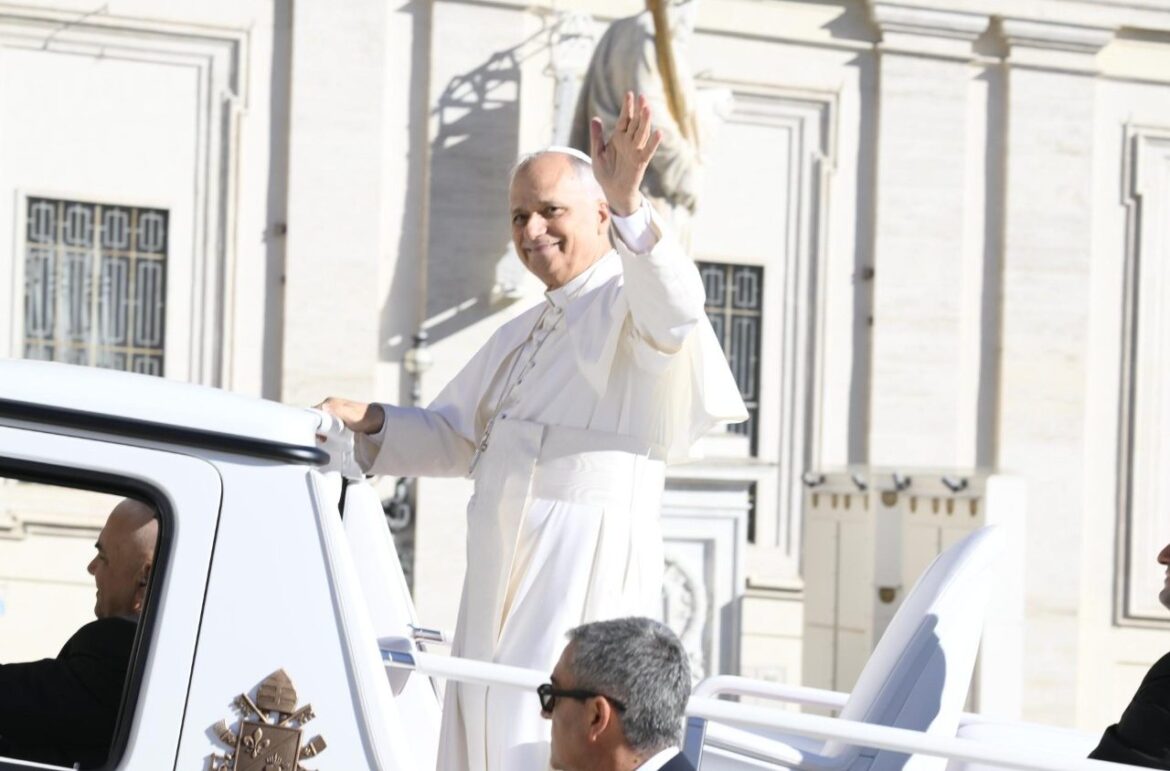
Continuing his catechesis on the Paschal Mystery at the weekly General Audience, Pope Leo XIV reflects on Christ’s humility in the Resurrection.
By Christopher Wells
When Christ rose from the dead, He did not return to His disciples surrounded by angels, performing spectacular deeds or giving great speeches to reveal the secrets of the universe, Pope Leo reminded the faithful at his Wednesday General Audience.
Instead, His Resurrection was marked by the humility of simple, ordinary gestures, appearing as a gardener, a foreigner, or a passing stranger. Where we, and the disciples, might expect “special effects, powerful signs, or overwhelming proof,” Jesus prefers the language “of closeness, of normality, of a shared table.”
This “surprising aspect” of the Resurrection, the Pope said, contains a “precious message for us: The Resurrection is not a dramatic plot twist, but a silent transformation that fills every human action with meaning,” showing us that “in the Paschal Mystery of Christ, everything”—even the most ordinary human gestures—can become grace.”
And yet, Pope Leo continued, “there is an obstacle that can prevent us from recognizing Christ’s presence in everyday life: the illusion that joy must be without wounds.”
The disciples on the road to Emmaus were saddened when their expectations for the Messiah were disappointed, the Pope recalled. Jesus, though, helped them to understand that sorrow and pain do not negate God’s promises, but are instead “the very path by which God reveals the depths of His love.”
The Resurrection of Jesus, the Pope said, teaches us that no one’s life story is so marked by disappointment or sin that it can’t be “visited by hope,” that “no fall is definitive, no night eternal, no wound destined to remain open forever.
“However far away we may feel, however lost or unworthy, there is no distance that can extinguish the unfailing power of God’s love.”
Pope Leo emphasized that it is precisely in “our darkest moments” that Jesus comes to us, asking us to allow Him to remain with us and warm our hearts.
“Let us ask, then, for the grace to recognize His humble and gentle presence,” the Pope said, “not to demand a life without trials, but to discover that every sorrow, if inhabited by love, can become a place of communion.”
“And so,” he concluded, “may we too return to our homes with hearts burning with joy—a simple joy that does not erase our wounds but illuminates them; a joy born of the certainty that the Lord is alive, that He walks with us, and that at every moment He offers us the chance to begin again.”

